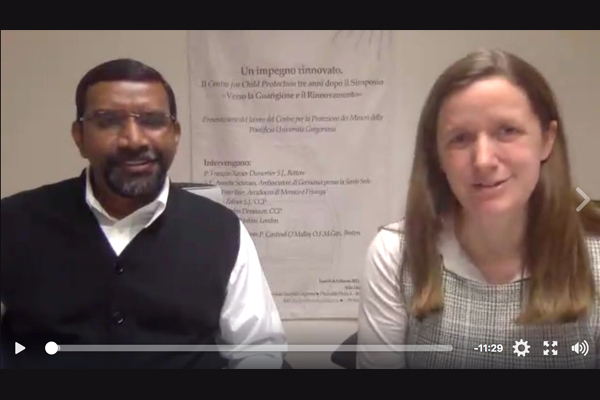
Meet CCP Doctoral Student Fr. Jose Melukunnel
Fr. Jose Melukunnel comes to the CCP from Nicaragua, he is a priest of the Divine Word Missionaries (SVD). This is his third year on the CCP team. He did his licentiate in Educational Psychology in Nicaragua and worked as Vice-Rector at St. Peter's College in Rome, which serves priests from Asia and Africa who attend the Pontifical Universities. His topic, concerning childhood physical and sexual abuse among the street gangs, was born of his experience in Managua, Nicaragua doing pastoral and formation work as the rector of the seminary.
Interview: A chat with Fr. Jose Melukunnel, SVD
The following is an overview of his project:
Area of Investigation: The experience of previous intrafamilial physical and sexual abuse among the (ex) members of Pandilla (street gangs) in Managua and indications for prevention based on field data.
I have opted to do this research in Central America (Nicaragua) in the field of protection of minors against abuse. I have been working in Nicaragua for many years. The parish and the formation house where I worked are located in the outskirts of Managua city. It is a red zone area with a strong presence of Pandilla (street gangs). The confrontations between different gangs and killings are very common. One thing that I have observed during my years of work in Managua is that most of the members of the gangs come from economically poor and disintegrated families. When we talk about families in Central America, concretely in Nicaragua, the most prevalent form of family is that of ‘free union’ or ‘living together’ relationship, especially among the lower class of the society. Mostly, it is not a stable relationship and thus these kinds of relationships are short-lived, giving rise to families with stepfathers, stepmothers, stepbrothers, multiple partners etc. Another reality to be taken into consideration is the type of houses. Normally those are small houses with one or two rooms with overcrowding, which results in difficulties to find private space for intimacy, paving way for unwanted exposure and tensions.
These elements made me to think that probably the members of the gangs have gone through experiences of abuses (physical and sexual) during their childhood, in their own homes. The very family atmosphere does not provide a safe environment, but on the contrary contributes to the possibility of being abused. From the documentary research, it is evident that there is a considerable coincidence between the early childhood experience of abuse and later participation in the antisocial activities, however, stressing the fact that all abused children not necessarily become antisocial.
Now my interest is to investigate how the early childhood experience of abuse (physical and sexual abuse) that the members of pandilla or ex members, in their homes has contributed to their decision to join the pandilla. Specifically I am investigating by interviewing members or ex-members of pandilla in Managua about their experience of physical abuse, sexual abuse, the impact of the abuse on them, the family atmosphere and its influence and finally based on the collected field data, come out with suggestions for effective prevention.

